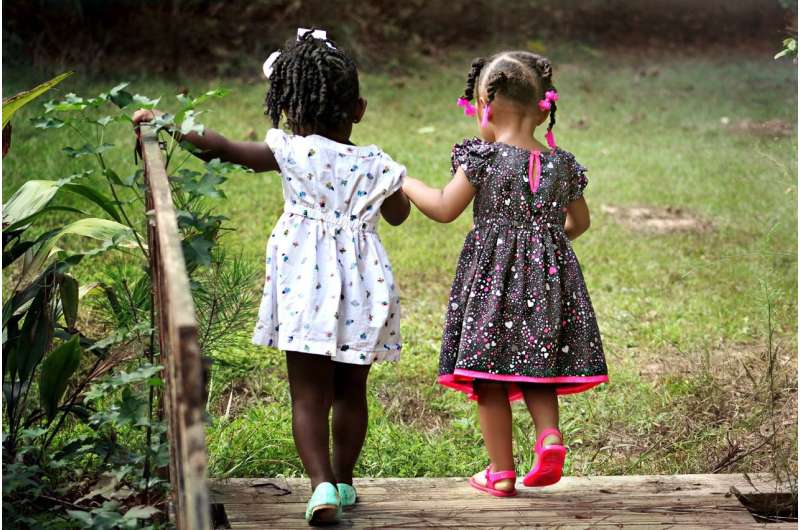This article has been reviewed according to Science X's editorial process and policies. Editors have highlighted the following attributes while ensuring the content's credibility:
fact-checked
peer-reviewed publication
trusted source
proofread
Predicting others' preference-based choices is cross-cultural and uniquely human, suggests study

Children across cultures can anticipate other individuals' choices based on their preferences, according to a study published in PLOS ONE by Juliane Kaminski at the University of Portsmouth and colleagues. However, non-human great apes appear to lack this ability.
Understanding the beliefs, desires, and preferences of others is known as "theory of mind," but whether or not this ability is unique to humans remains unclear. Researchers investigated if children and non-human great apes could predict the food choices of others based on their preferences.
They tested 71 children aged 5 to 11 years from Namibia, Germany, and Samoa, and 25 great apes from four species: chimpanzees (Pan troglodytes), bonobos (Pan paniscus), gorillas (Gorilla gorilla), and orangutans (Pongo abelii).
The children and apes were paired with an adult human competitor, who indicated a food preference that either matched or differed from their own. Each participant was asked to choose one of three food rewards, after their competitor had made a selection in private.
Children refrained from choosing their preferred option when paired with a competitor who shared their preference, thereby maximizing the chance that their chosen option was still available. But they selected their favored food when their competitor's preference differed from theirs. In contrast, the great apes tended to choose their preferred option regardless of their competitor's preference.
These findings support the hypothesis that recognizing the preferences of others, even when they differ from our own, is a uniquely human trait. The researchers found children across diverse societies considered their partners' preferences, indicating that this facet of childhood theory of mind is remarkably robust to cultural influence.
According to the authors, the study suggests the ability to understand that others can have different preferences and to take this into account when making decisions is universal in humans and independent of culture.
The authors add, "Our results suggest that the tendency to anticipate others' preferences is cross-culturally robust and, among the great apes, most likely specific to humans."
More information: Understanding others' preferences: A comparison across primate species and human societies, PLoS ONE (2024). DOI: 10.1371/journal.pone.0295221
Journal information: PLoS ONE
Provided by Public Library of Science





















